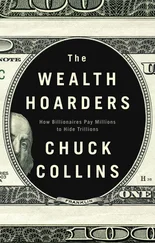These ordinary or average rates may be called the natural rates of wages, profit, and rent, at the time and place in which they commonly prevail.
When the price of any commodity is neither more nor less than what is sufficient to pay the rent of the land, the wages of the labour, and the profits of the stock employed in raising, preparing, and bringing it to market, according to their natural rates, the commodity is then sold for what may be called its natural price.
The commodity is then sold precisely for what it is worth, or for what it really costs the person who brings it to market; for though in common language what is called the prime cost of any commodity does not comprehend the profit of the person who is to sell it again, yet if he sell it at a price which does not allow him the ordinary rate of profit in his neighbourhood, he is evidently a loser by the trade; since by employing his stock in some other way he might have made that profit. His profit, besides, is his revenue, the proper fund of his subsistence. As, while he is preparing and bringing the goods to market, he advances to his workmen their wages, or their subsistence; so he advances to himself, in the same manner, his own subsistence, which is generally suitable to the profit which he may reasonably expect from the sale of his goods. Unless they yield him this profit, therefore, they do not repay him what they may very properly be said to have really cost him.
Though the price, therefore, which leaves him this profit is not always the lowest at which a dealer may sometimes sell his goods, it is the lowest at which he is likely to sell them for any considerable time; at least where there is perfect liberty, or where he may change his trade as often as he pleases.
The actual price at which any commodity is commonly sold is called its market price. It may either be above, or below, or exactly the same with its natural price.
The market price of every particular commodity is regulated by the proportion between the quantity which is actually brought to market, and the demand of those who are willing to pay the natural price of the commodity, or the whole value of the rent, labour, and profit, which must be paid in order to bring it thither. Such people may be called the effectual demanders, and their demand the effectual demand; since it may be sufficient to effectuate the bringing of the commodity to market. It is different from the absolute demand. A very poor man may be said in some sense to have a demand for a coach and six; he might like to have it; but his demand is not an effectual demand, as the commodity can never be brought to market in order to satisfy it.
When the quantity of any commodity which is brought to market falls short of the effectual demand, all those who are willing to pay the whole value of the rent, wages, and profit, which must be paid in order to bring it thither, cannot be supplied with the quantity which they want. Rather than want it altogether, some of them will be willing to give more. A competition will immediately begin among them, and the market price will rise more or less above the natural price, according as either the greatness of the deficiency, or the wealth and wanton luxury of the competitors, happen to animate more or less the eagerness of the competition. Among competitors of equal wealth and luxury the same deficiency will generally occasion a more or less eager competition, according as the acquisition of the commodity happens to be of more or less importance to them. Hence the exorbitant price of the necessaries of life during the blockade of a town or in a famine.
When the quantity brought to market exceeds the effectual demand, it cannot be all sold to those who are willing to pay the whole value of the rent, wages, and profit, which must be paid in order to bring it thither. Some part must be sold to those who are willing to pay less, and the low price which they give for it must reduce the price of the whole. The market price will sink more or less below the natural price, according as the greatness of the excess increases more or less the competition of the sellers, or according as it happens to be more or less important to them to get immediately rid of the commodity. The same excess in the importation of perishable, will occasion a much greater competition than in that of durable commodities; in the importation of oranges, for example, than in that of old iron.
When the quantity brought to market is just sufficient to supply the effectual demand, and no more, the market price naturally comes to be either exactly, or as nearly as can be judged of, the same with the natural price. The whole quantity upon hand can be disposed of for this price, and cannot be disposed of for more. The competition of the different dealers obliges them all to accept of this price, but does not oblige them to accept of less.
The quantity of every commodity brought to market naturally suits itself to the effectual demand. It is the interest of all those who employ their land, labour, or stock, in bringing any commodity to market, that the quantity never should exceed the effectual demand; and it is the interest of all other people that it never should fall short of that demand.
If at any time it exceeds the effectual demand, some of the component parts of its price must be paid below their natural rate. If it is rent, the interest of the landlords will immediately prompt them to withdraw a part of their land; and if it is wages or profit, the interest of the labourers in the one case, and of their employers in the other, will prompt them to withdraw a part of their labour or stock from this employment. The quantity brought to market will soon be no more than sufficient to supply the effectual demand. All the different parts of its price will rise to their natural rate, and the whole price to its natural price.
If, on the contrary, the quantity brought to market should at any time fall short of the effectual demand, some of the component parts of its price must rise above their natural rate. If it is rent, the interest of all other landlords will naturally prompt them to prepare more land for the raising of this commodity; if it is wages or profit, the interest of all other labourers and dealers will soon prompt them to employ more labour and stock in preparing and bringing it to market. The quantity brought thither will soon be sufficient to supply the effectual demand. All the different parts of its price will soon sink to their natural rate, and the whole price to its natural price.
The natural price, therefore, is, as it were, the central price, to which the prices of all commodities are continually gravitating. Different accidents may sometimes keep them suspended a good deal above it, and sometimes force them down even somewhat below it. But whatever may be the obstacles which hinder them from settling in this centre of repose and continuance, they are constantly tending towards it.
The whole quantity of industry annually employed in order to bring any commodity to market naturally suits itself in this manner to the effectual demand. It naturally aims at bringing always that precise quantity thither which may be sufficient to supply, and no more than supply, that demand.
But in some employments the same quantity of industry will in different years produce very different quantities of commodities; while in others it will produce always the same, or very nearly the same. The same number of labourers in husbandry will, in different years, produce very different quantities of corn, wine, oil, hops, etc. But the same number of spinners and weavers will every year produce the same or very nearly the same quantity of linen and woollen cloth. It is only the average produce of the one species of industry which can be suited in any respect to the effectual demand; and as its actual produce is frequently much greater and frequently much less than its average produce, the quantity of the commodities brought to market will sometimes exceed a good deal, and sometimes fall short a good deal, of the effectual demand. Even though that demand therefore should continue always the same, their market price will be liable to great fluctuations, will sometimes fall a good deal below, and sometimes rise a good deal above their natural price. In the other species of industry, the produce of equal quantities of labour being always the same, or very nearly the same, it can be more exactly suited to the effectual demand. While that demand continues the same, therefore, the market price of the commodities is likely to do so too, and to be either altogether, or as nearly as can be judged of, the same with the natural price. That the price of linen and woolen cloth is liable neither to such frequent nor to such great variations as the price of corn, every man's experience will inform him. The price of the one species of commodities varies only with the variations in the demand: that of the other varies, not only with the variations in the demand, but with the much greater and more frequent variations in the quantity of what is brought to market in order to supply that demand.
Читать дальше












